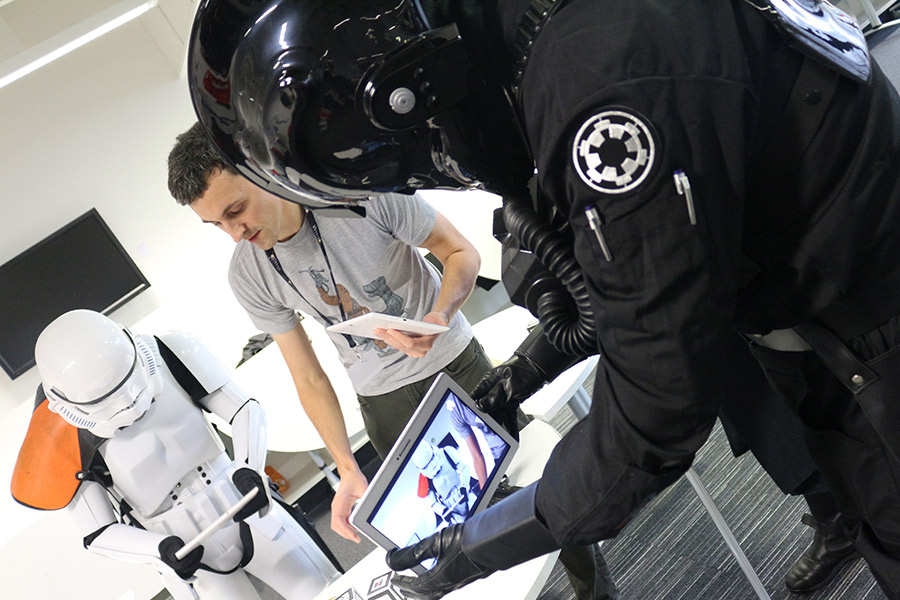
Build your own virtual accelerator
Build your own virtual particle accelerator with the aid of the acceleratAR app and gain a hands-on, immersive understanding of how these machines…

Did you know that CERN runs national and international teacher programs every year? Submit your application and get ready to inspire and be inspired at the home of the Large Hadron Collider (LHC)!
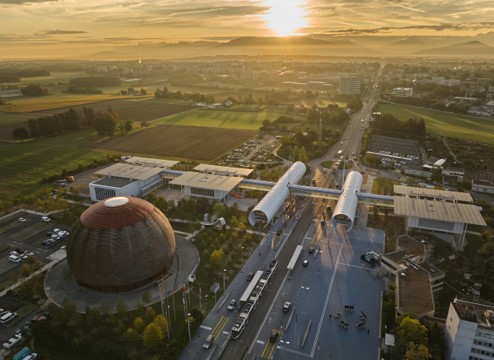
Every year, CERN offers various professional development programmes to help high-school science teachers keep up to date with the latest developments in particle physics and related areas and experience a dynamic, international research environment.[1] All programmes are facilitated by experts in the fields of physics, engineering, and computing, and include an extensive lecture and visit itinerary. Furthermore, CERN’s teacher programmes enable you to meet with teaching colleagues from your country and around the world. CERN offers teacher programmes in either English or one of the national languages of the CERN Member States, and they last between three days and two weeks. Choose your favourite, submit your application in time, and get ready to update your particle physics knowledge at the home of the LHC!
As an Intergovernmental Organisation, CERN is run by its 23 Member States: Austria, Belgium, Bulgaria, Czech Republic, Denmark, Finland, France, Germany, Greece, Hungary, Israel, Italy, Netherlands, Norway, Poland, Portugal, Romania, Serbia, Slovak Republic, Spain, Sweden, Switzerland, and the United Kingdom. Croatia, India, Latvia, Lithuania, Pakistan, Türkiye, and Ukraine are Associate Member States and Cyprus, Estonia, and Slovenia are Associate Member States in the pre-stage to Membership. For teachers from each of these countries, CERN offers dedicated week-long national teacher programmes that are held in the language of the respective country. These programmes are organised on a weekly basis, with about 35 national teacher programmes taking place every year at CERN. Depending on the population of the country, certain national teacher programmes take place several times per year, whereas for other countries they only take place every other year. For example, each year CERN runs up to three Italian teacher programmes, up to three German teacher programmes, two UK teacher programmes, two Greek teacher programmes, and one French teacher programme.
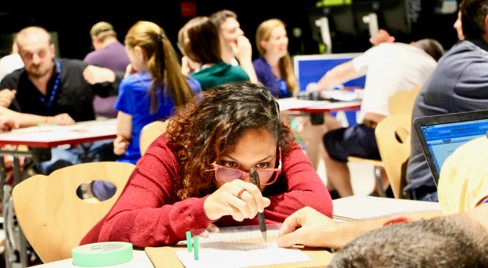
While every national teacher programme at CERN is unique, all of them follow a common core curriculum, which covers the main aspects of particle physics research at CERN. During interactive lectures, you will hear introductions to CERN and the physics of particle accelerators and particle detectors, an in-depth analysis of advances in computing and data analysis in particle physics research, and a discussion of the challenges in both civil engineering and material sciences, and learn about special topics, such as medical applications of particle physics. Complimentary to these lectures are on-site visits to CERN’s research facilities, such as its very first particle accelerator, the Synchrocyclotron, or one of the big LHC detectors, for example, ATLAS or CMS.
By combining lectures and visits, CERN’s teacher programmes enable teachers to construct meaningful knowledge structures and enhance their professional knowledge through immersion in a dynamic, international research environment. Furthermore, hands-on workshops in CERN’s flagship education and outreach centre, Science Gateway,[2] are integral parts of every teacher programme and showcase best-practice examples of how to introduce particle physics to students. For example, during the cloud-chamber workshop, you will be able to detect particles with a DIY particle detector that you can then replicate in your classroom.
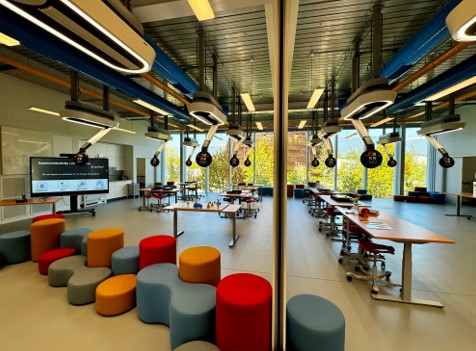
The most important dimension of CERN’s teacher programmes, however, is the social one. Each teacher programme covers an extensive agenda with a variety of lectures, visits, and workshops, but there are also plenty of opportunities for all participants to exchange ideas, reflect on the programme’s content, and learn from each other. This happens during both informal coffee breaks and official social events, such as the programme dinner, which, being close to Geneva, Switzerland, has to be a delicious cheese fondue!
Participation in CERN’s teacher programmes is free and open to in-service high-school science teachers, with priority for physics teachers. Due to high demand, submitting your application on time is essential! Each national teacher programme has its own application process, which may be handled by national education bodies or by CERN directly. Applications usually open three to four months in advance and close no later than six weeks before the programme starts. For more information about the respective application process and the relevant deadlines, please consult CERN’s teacher programmes website,[1] through which you can also get in contact with the respective national coordinators.
CERN’s teacher programmes are delivered free of charge. Funding is available for selected national teacher programmes to cover teachers’ living and/or travel costs. These are subject to contributions from external donors through the CERN & Society Foundation[3] or from governmental authorities. If no funding is available, teachers need to cover their living and travel costs individually.
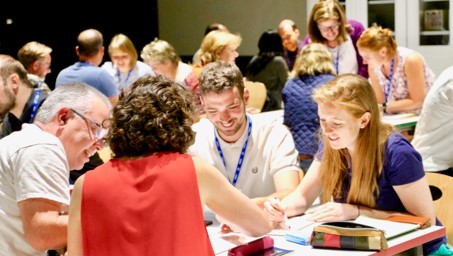
In addition to national teacher programmes, CERN offers two two-week international teacher programmes: the International High School Teacher (HST) programme and the International Teacher Weeks (ITW) programme, which are identical in style, content and material covered. The HST programme traditionally takes place at the beginning of July and the ITW programme takes place in August. Both programmes are delivered entirely in English and are open to in-service science teachers from around the world who teach STEM subjects at the high-school level. Up to 48 teachers are selected for each international teacher programme, bringing together a unique and diverse group of highly motivated educators.
The HST and ITW programmes follow a similar curriculum to the national teacher programmes, but due to their extended duration teachers can expect a more diverse lecture and visit itinerary and more social events beyond the traditional cheese fondue. Furthermore, each group is divided into smaller study groups that focus on and discuss essential aspects of the programme and deliver a final report on how to introduce these topics in the classroom during a public seminar at CERN.
It goes without saying that applicants need to have a good working knowledge of the English language and need to be committed to attending the programmes in full. Furthermore, preference goes to teachers who have proven experience in extra-curricular activities, such as organising educational activities (science olympiads, summer courses for students), contributing to the planning of national curricula, or involvement in the activities of national and international educational bodies.
In 2024, the HST programme will take place from 30 June until 13 July 2024 and the ITW programme will take place over 4–17 August 2024. Both programmes are open to in-service science teachers from around the world. Due to high demand, submitting your application on time is essential! The application process is open from 1 November 2023 until 14 January 2024 and is exclusively handled via CERN’s teacher programmes website.[1]
CERN’s international teacher programmes are fully funded! Indeed, every accepted applicant will receive an allowance to cover their living costs for the duration of the respective programme. Furthermore, limited funds are available to support a small number of teachers with a travel grant.
We look forward to another fantastic year full of teacher programmes at CERN and to welcoming you here in Geneva soon!
[1] The CERN teacher programmes: https://teachers.cern
[2] The CERN Science Gateway website: https://sciencegateway.cern
[3] Details on the CERN & Society Foundation: https://cernandsocietyfoundation.cern

Build your own virtual particle accelerator with the aid of the acceleratAR app and gain a hands-on, immersive understanding of how these machines…
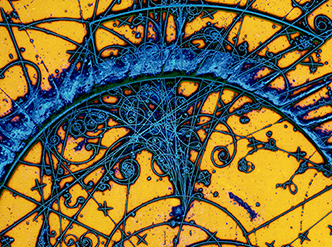
Identify tracks of subatomic particles from their ‘signatures’ in bubble chamber photos – a key 20th century technology for studying particle…
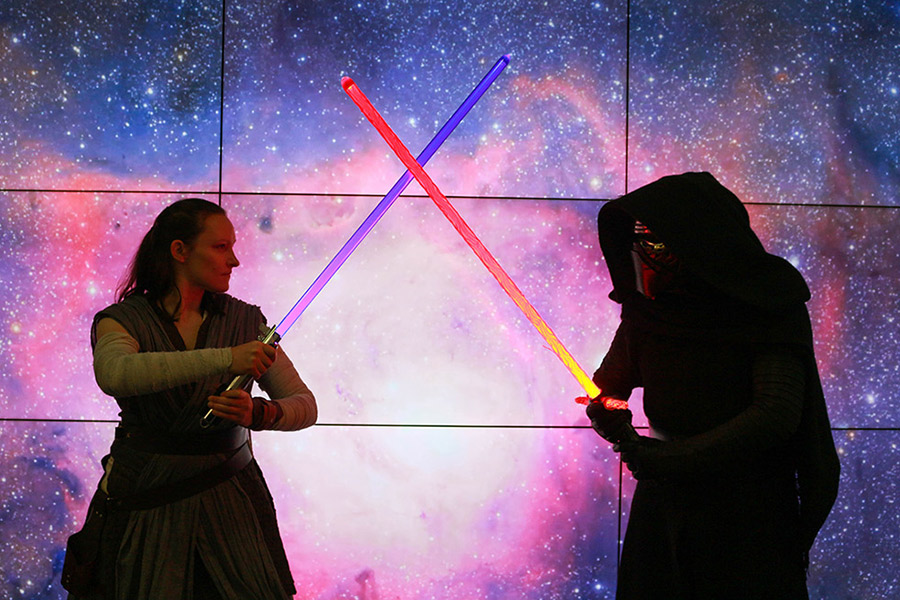
Science fiction can be an engaging starting point for scientific discussions. Learn how one research group is using Star Wars to introduce students…